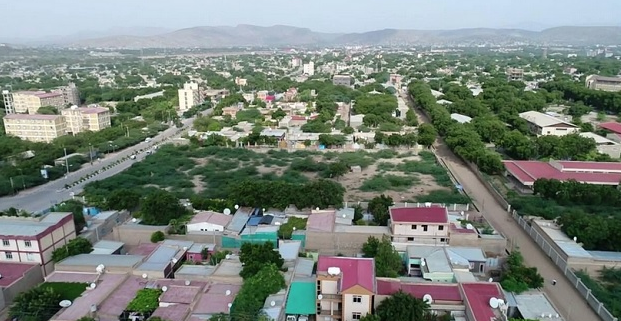
Radar | Aug 31,2019
Aug 7 , 2021
By Christian Tesfaye
The power of markets to bring people together cannot be underrated. Milton Friedman, famed economist, infamous if one is more left-leaning, once used the pencil to describe how markets bring people together from around the world. He took from an example utilised by Adam Smith on the division of labour to illustrate how no one person can make the pencil by themselves.
“The wood from which it’s made comes from a tree that was cut down in the state of Washington; to cut down that tree, it took a saw. To make the saw, it took steel. To make the steel, it took iron ore. This black centre, we call it lead but it’s really compressed graphite. I am not sure where it comes from but I think it comes from mines in South America.” he explains, holding a pencil in his hands. “This red top up here, eraser, a bit of rubber, probably comes from Malaya, where the rubber tree is not even native. It was imported from South America by some businessmen with the help of the British government. This brass ferrule, I haven’t the slightest idea where it came from, or the yellow paint, or the paint that made the black lines or the glue that holds it together.”
This was an upgrade to Adam Smith’s example on the production of pins. He explained, in his book “Wealth of Nations,” how 10 people can come together to produce tens of thousands of pins every day as long as they are engaged in specialised skills along the production value chain. What Friedman, who won the Nobel Prize in economics for his monetary stabilisation theory, does is make a political argument for it as well.
“Literally, thousands of people, cooperated to make this pencil,” he continued with his pencil example. “People who don’t speak the same language, who practice different religions, who might hate one another if they ever met. What brought them together and induced them to cooperate to make this pencil? There was no commissars sending out orders from some central office. It was the magic of the price system [channelling Hayek’s price signals here] . . . that brought them together and got them to cooperate to make this pencil so you could have it for a trifling sum.”
The pencil, sold at affordable prices, is a social good created out of economic cooperation. The whole process is not as historically non-violent as Friedman makes it sound. There is the extraction of economic resources from poor countries to wealthy ones, which throughout historical times has been conducted through means of violent colonialism. Even today, raw material exporting countries inevitably grow slower than industralised nations that are able to add value to each good. Raw materials, unless through more efficient means of extraction that brings down costs, or when there are the occasional shortages, have flat returns for the countries that export them. While value-added goods’ exporters see returns exponential growth as more sophisticated products sell for higher than their previous versions.
Still, this is a case for developing countries to invest in value addition and for a fairer and more just global economic order, not for doing away with markets, which can help the world produce social goods. It is the way to make affordable pencils, as well as transition successfully into green economies.
It is globalisation and improved living standards that have put a stamp on raging conflicts since World War II, although the United States and the United Nations take an oversized credit for this. Starved people and unemployed youth fight. Their frustration can easily be harnessed by opportunistic elites into weapons of distraction. We are not really at war between ourselves. They are just battles.
The war is with poverty, and Ethiopia, and Sub-Saharan Africa, have always been losers in this when they took their core focus away from it.
PUBLISHED ON
Aug 07,2021 [ VOL
22 , NO
1110]


Fortune News | Dec 27,2018

Radar | Jan 09,2021

Fortune News | Feb 23,2019

Radar | Feb 16,2019

Fortune News | Dec 04,2022

Photo Gallery | 178108 Views | May 06,2019

Photo Gallery | 168318 Views | Apr 26,2019

Photo Gallery | 159080 Views | Oct 06,2021

My Opinion | 137048 Views | Aug 14,2021
Commentaries | Oct 25,2025

Dec 22 , 2024 . By TIZITA SHEWAFERAW
Charged with transforming colossal state-owned enterprises into modern and competitiv...

Aug 18 , 2024 . By AKSAH ITALO
Although predictable Yonas Zerihun's job in the ride-hailing service is not immune to...

Jul 28 , 2024 . By TIZITA SHEWAFERAW
Unhabitual, perhaps too many, Samuel Gebreyohannes, 38, used to occasionally enjoy a couple of beers at breakfast. However, he recently swit...

Jul 13 , 2024 . By AKSAH ITALO
Investors who rely on tractors, trucks, and field vehicles for commuting, transporting commodities, and f...

Oct 25 , 2025
The regulatory machinery is on overdrive. In only two years, no fewer than 35 new pro...

Oct 18 , 2025
The political establishment, notably the ruling party and its top brass, has become p...

Oct 11 , 2025
Ladislas Farago, a roving Associated Press (AP) correspondent, arrived in Ethiopia in...

Oct 4 , 2025
Eyob Tekalegn (PhD) had been in the Governor's chair for only weeks when, on Septembe...

Oct 25 , 2025 . By YITBAREK GETACHEW
Officials of the Addis Abeba's Education Bureau have embarked on an ambitious experim...

Oct 26 , 2025 . By YITBAREK GETACHEW
The federal government is making a landmark shift in its investment incentive regime...

Oct 27 , 2025
The National Bank of Ethiopia (NBE) is preparing to issue a directive that will funda...

Oct 26 , 2025 . By SURAFEL MULUGETA
A community of booksellers shadowing the Ethiopian National Theatre has been jolted b...